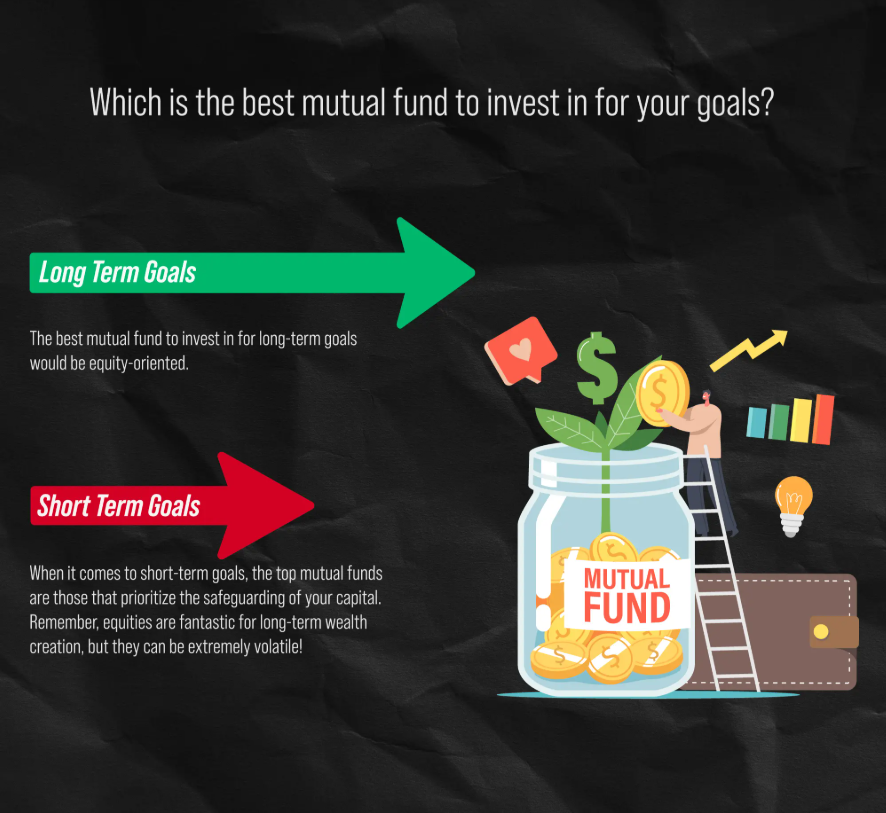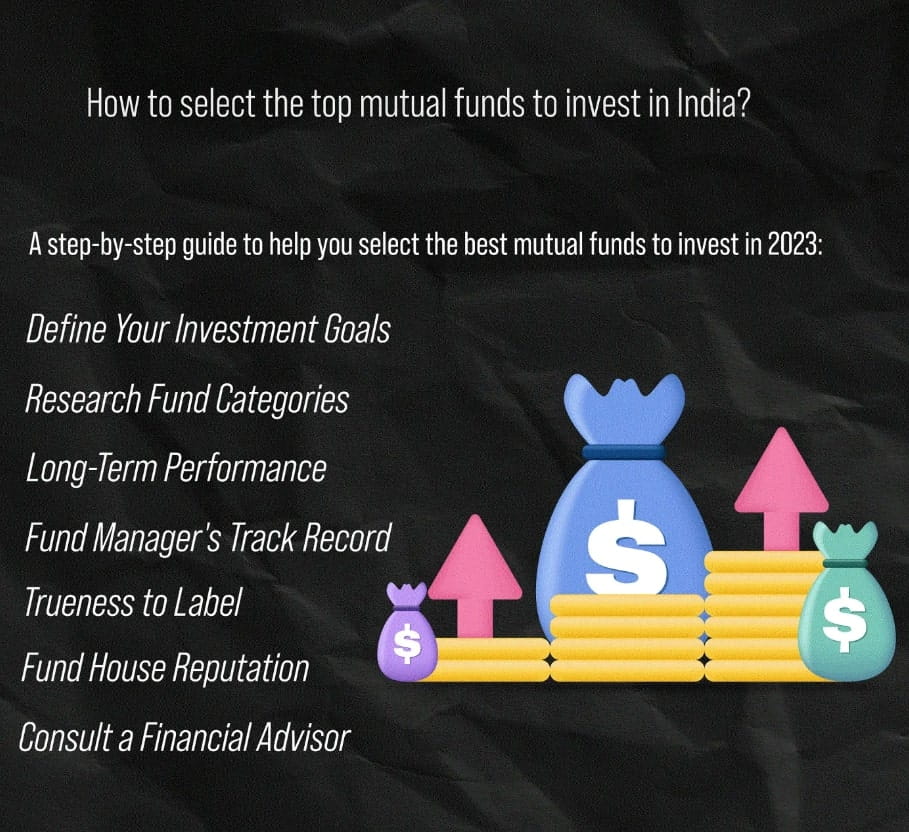Top Mutual Funds 2025: Why Chasing Returns Doesn’t Build Wealth
- A data-backed look at 2023–2024 top-performing funds and why rankings keep changing
- Insights into why chasing short-term returns reduces wealth creation
- Expert framework for selecting mutual funds aligned with personal goals
- Updated 2025 perspective on long-term versus short-term investing
Each year, investors search for the “best mutual funds to invest in,” hoping to replicate past success. Yet, data shows that chasing last year’s winners rarely leads to wealth creation. True success lies in discipline, patience, and following a process, not prediction.
Why “Top Mutual Fund” Searches Can Mislead Investors
Every January, search engines fill up with queries like “Top Mutual Funds 2025”. The intent is simple, to find the “winning” funds that will outperform this year.
But markets don’t work that way.
Top performers change each year due to economic cycles, sector shifts, and investor sentiment. The real question isn’t “Which fund performed best last year?”, it’s “Which investment process can help me stay invested long enough to benefit from compounding?”
Consistent wealth creation doesn’t come from predicting short-term returns. It comes from investing resilience, the ability to remain invested, regardless of market noise.
Top Performing Mutual Funds: 2023 vs 2024
Let’s look at how quickly fund rankings can shift.
Top Performing Mutual Funds of 2023
|
Fund Name |
Category |
Returns |
|
Small Cap |
35.89% |
|
|
Small Cap |
34.36% |
|
|
Small Cap |
34.31% |
Top Performing Mutual Funds of 2024
|
Fund Name |
Category |
Returns |
|
Sectoral/Thematic |
53% |
|
|
Large & Mid Cap |
49% |
|
|
Focused Fund |
46% |
Notice how the top-performing categories changed entirely from small caps in 2023 to thematic and large-mid cap funds in 2024.
This volatility shows that “predicting the next winner” is an impossible and often counterproductive task.
Even within a single category, leadership can rotate rapidly, making last year’s “best” fund an average performer this year
Why Selecting the “Top Fund” Doesn’t Guarantee Long-Term Success
1. Chasing Returns Leads to Poor Timing
Investors who constantly switch funds based on short-term outperformance often buy high and sell low. This behaviour erodes returns over time and widens what’s known as the “behaviour gap”, the difference between investment performance and investor performance.
2. Performance Cycles Change Annually
Different fund categories outperform in different market conditions.
In one year, small caps may dominate; in another, large caps or sectoral funds take the lead.
Relying on short-term data can distort your long-term portfolio balance.
3. The Real Driver: Investing Resilience
Your success doesn’t depend on discovering the top fund, it depends on staying invested through cycles. Investors who resist the urge to switch funds frequently tend to benefit from the compounding effect that unfolds over time.
4. Process Over Prediction
Wealth creation is the outcome of a structured process, defining goals, setting expectations, reviewing periodically, and staying disciplined.
Focusing on process ensures long-term consistency, while focusing on predictions only amplifies anxiety.
Which Mutual Funds Are Best for Your Goals?

For Long-Term Goals
Equity-oriented mutual funds work best for goals that are five years or more away, such as retirement or children’s education.
However, investors often approach long-term goals with excessive caution, preferring fixed-income instruments like PPF or endowment plans. While these offer stability, they limit compounding potential. Equity mutual funds, on the other hand, reward investors who remain patient and disciplined over long durations.
For Short-Term Goals
For goals due within three years, such as a car purchase, home down payment, or vacation, capital preservation should take priority. Opt for liquid, arbitrage, or short-term debt funds. These categories minimize volatility and safeguard your capital when liquidity is required.
How to Select the Top Mutual Funds to Invest in India

Selecting the best mutual fund to invest in requires structured evaluation, not reactive decision-making. Here’s a framework for selection:
-
Define Your Investment Goals – Clarify what you’re investing for and over what time horizon.
-
Research Fund Categories – Understand whether equity, debt, or hybrid funds suit your goals.
-
Evaluate Long-Term Performance – Look for consistency across 5–10 years, not 6–12 months.
-
Check the Fund Manager’s Track Record – Experience and tenure matter, particularly across market cycles.
-
Ensure Trueness to Label – A “mid-cap fund” should remain true to its category; avoid style drift.
-
Review Fund House Reputation – Strong governance and process orientation often correlate with stability.
-
Consult a Financial Advisor – Professional guidance ensures alignment between your financial goals, time horizon, and risk capacity.
SIPs are the Best Way to Invest in Mutual Funds in 2025
SIP investing is one of the most effective ways to build wealth systematically — but only when executed correctly.
Before starting a SIP, evaluate:
-
Your understanding of risk: SIPs are market-linked and differ from traditional instruments like recurring deposits.
-
Fund quality: Choose funds with a long-term track record of consistent management. Avoid ranking-based SIP decisions.
-
Goal mapping: Every SIP should be linked to a financial goal, not short-term returns. This connection fosters discipline and minimises impulsive emotional decisions.
Remember, your behaviour matters more than your fund selection. A well-chosen SIP held through market ups and downs often outperforms an “ideal” SIP that’s frequently interrupted.
Conclusion
The idea of finding the “best mutual fund” changes every year, but the foundation of successful investing never does, discipline, clarity, and process. Rather than chasing fleeting returns, align your investments with your long-term goals, review periodically, and stay resilient through volatility. That’s how wealth is truly created, not by predicting winners, but by staying invested in a winning process.
FAQs
Your Investing Experts
Continue Reading
Why Mid-Cap Allocation Needs More Discipline Than Large Cap
Mid-cap allocation demands more discipline than large cap because it comes with sharper market swings. While mid caps offer higher long-term growth potential, they also test investor patience during downturns. The key is not choosing one over the other, but understanding how each behaves across market cycles.
Why Return-Focused Investing Fails in Volatile Markets
Return-focused investing fails in volatile markets because it relies on recent performance as the primary decision-making anchor. When markets fluctuate sharply, investors who chase returns tend to react emotionally switching funds, exiting prematurely, or increasing risk at the wrong time. Over time, these reactions interrupt compounding and damage long-term wealth creation.
What Is NAV in Mutual Fund? A Simple Guide to Understanding Net Asset Value
If you are trying to understand what NAV in mutual fund investing means, the answer is simple: NAV, or net asset value, represents the per-unit value of a mutual fund’s portfolio after deducting its liabilities. It tells you how much each unit you hold is worth at the end of a trading day. It does not indicate whether a fund is cheap, expensive, or better than another, it is simply a daily valuation measure.

.png)

.png)
